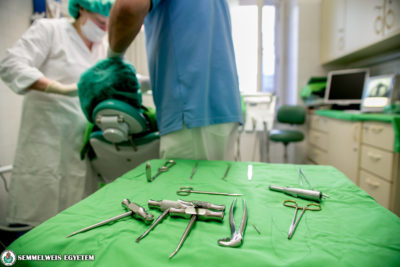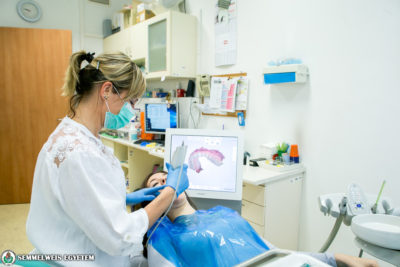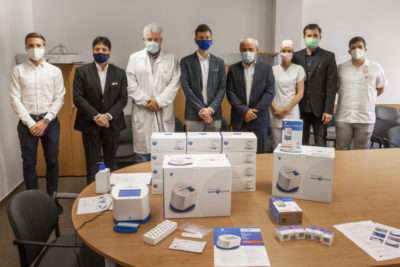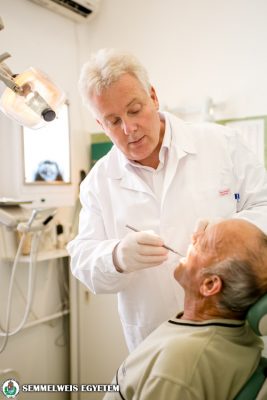 “The dental treatment of patients with special needs requires special circumstances, as tooth preservation and other interventions can be performed almost exclusively under general anaesthesia due to lack of cooperation. A simple procedure, such as tartar removal is often impossible when the patient is awake, therefore complex centres are required that provide infrastructure for anaesthesia and dental care at the same time.”, Dr. Zsolt Németh said.
“The dental treatment of patients with special needs requires special circumstances, as tooth preservation and other interventions can be performed almost exclusively under general anaesthesia due to lack of cooperation. A simple procedure, such as tartar removal is often impossible when the patient is awake, therefore complex centres are required that provide infrastructure for anaesthesia and dental care at the same time.”, Dr. Zsolt Németh said.
Such dental and surgical interventions have been performed at the Department for thirty years and five years ago, a new Rehabilitation Unit was set up with the assistance of the Ministry of Human Capacities. Since then, 2 200 patients with mild, moderate and severe mental disabilities, Down-syndrome, autism, epilepsy and panic disorder have been treated there under general anaesthesia.
Scheduled interventions and acute care are both performed at the Department. Most of the times, surgical interventions are carried out, however, in most cases cavities are treated and tartar removal is done as well while the patient is under anaesthesia. In addition, root canal treatments and cyst removal are performed at the department for this patient group.
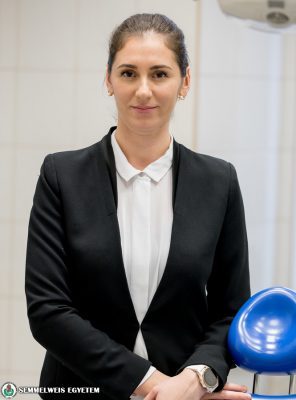 The Department’s Rehabilitation Unit takes part in the training of the Faculty of Dentistry. A lecture course for fourth year students provides an insight into the treatment of patients with special needs. Dr. Ilona Szmirnova, clinician said that the lectures walk students through the causes, characteristics and groups of disabilities, as well as the most important information related to special care.
The Department’s Rehabilitation Unit takes part in the training of the Faculty of Dentistry. A lecture course for fourth year students provides an insight into the treatment of patients with special needs. Dr. Ilona Szmirnova, clinician said that the lectures walk students through the causes, characteristics and groups of disabilities, as well as the most important information related to special care.
“The number of decayed and missing teeth correlates with age and the severity of the disability. Moreover, gum diseases become more frequent as the patient gets older.”, she said.
Dr. Ilona Szmirnova considers dental prevention of people with special needs of utmost importance in addition to proper acute care nation-wide.
“Prevention involves the knowledge of patients and their caregivers about proper oral hygiene by learning how to properly brush teeth and use mouthwash more frequently.”, she said.
She would like to contribute to prevention with her PhD thesis, which aims to map the dental conditions of hundreds of Hungarians with disabilities by examining the ratio of teeth with cavities, fillings and missing teeth, thus gaining a comprehensive status of their dental conditions. The results could later form the basis of a complex prevention programme.
Zsófia Haszon-Nagy
Photo: Attila Kovács – Semmelweis University
Translation: Ágnes Raubinek
